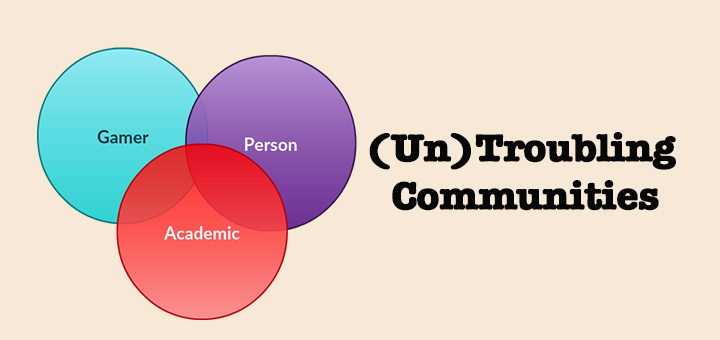Obsession is one of the most frightful things I’ve encountered. I’m not talking about how we think of obsession in popular culture: someone counting calories, watching a show over and over, or even wanting to spend most of your time with your puppies (I’ve been known to proclaim that I’m “obsessed” with my dogs). According to the DSM IV, obsession is marked by four things:
(1) recurrent and persistent thoughts, impulses, or images that are experienced, at some time during the disturbance, as intrusive and inappropriate and that cause marked anxiety or distress
(2) the thoughts, impulses, or images are not simply excessive worries about real-life problems
(3) the person attempts to ignore or suppress such thoughts, impulses, or images, or to neutralize them with some other thought or action
(4) the person recognizes that the obsessional thoughts, impulses, or images are a product of his or her own mind (not imposed from without as in thought insertion)
Another disorder, called Obsessive Relational Intrusion, is also closely related to the behavior often seen in online harassment campaigns. ORI is marked by repeated attempts to find out personal information and get close to the person. This behavior is commonly seen in cyberstalking.
Recently, Kotaku writer Jason Schreier reported on some information that ratcheted the run-of-the-mill trolling he is used to experiencing up to the level of harassment and death threats faced by countless women online. He reported that the game No Man’s Sky was going to be delayed. As a result, he faced harassment and death threats to him and his family. In the reflective article, he discusses one particularly disturbing message he received:

Something in particular about this message stood out to me. Well several things did, but I’ll talk about them later. Most importantly, and Jason Schreier points this out as well: “Its the only thing i live for [sic].” Has this person’s love of games crossed over that dangerous line of obsession? Have many of the people who harass women and developers online crossed this line? Do we have an army of gamers who:
(1) have recurrent and persistent thoughts and impulses that are intrusive and inappropriate and that cause marked anxiety or distress
(2) have thoughts that aren’t simply worry about life problems
(3) are unable to neutralize the thoughts and impulses
(4) the thoughts and impulses are product of his or her own mind.
Huh. It certainly seems so. It may seem that this is an arbitrary distinction: a diagnosis in a world of over-diagnosis and the medicalization of every kind of personality may seem pretty moot at this point. But for those of us desperately trying to change the landscape, to deal with the fallout of being targeted by these obsessive personality disorder harassers, and to find some rationality to hold on to, this may help. The Twitter responses, the Facebook rage, the threats; if you are facing someone with this personality disorder, two things are true: 1) YOU weren’t the one who caused the violent responses; it was always there, just focused on something else until you came into the crosshairs; and 2) you likely will not be able to reason or argue your way to an agreement.
The fact the Jason Scheier reported on something with a solid source (that turned out to be true) didn’t matter. The fact that Zoe Quinn didn’t sleep with someone for a positive review of her game (this was proven, as the person in question never published a review of her game) doesn’t matter. The fact that the women targeted by these campaigns all have reasonable positions not proportional to the violent response doesn’t matter. It isn’t about the victim: it’s about the abuser, just like so many mental illnesses.
I had a friendship with someone who has borderline personality disorder. It was incredibly difficult, and it can make you feel insane. Someone with borderline has extreme reactions to things, is impulsive, has distorted images of themselves and relationships, and–most relevant to this discussion–often attempts to mask their behavior by accusing others of doing the behavior before they can be accused. And I got sucked in. I was only able to distance myself this person, ignore the behaviors, and begin to recognize what had happened to me once I understood the disorder. It brought me an incredible amount of peace to know that I hadn’t caused all these things and that I was not responsible for fixing them.
The same can be garnered from realizing the obsessive nature of many harassers, like the one attacked Scheier. They aren’t responding to him any more than those attacking Anita Sarkeesian are responding to her: the obsessive disorder was already in full swing, and anyone who shows up on that person’s radar will experience the backlash. Anita Sarkeesian, or any of the other cultural critics, can’t “talk” those who harass and abuse and threaten out of it. You can’t reason around it.
Honestly though, this is way bigger than any one group of online harassers. Mental illness and gamers is an enormous issue that ranges from anxiety to eating disorders to suicide. Obsessive personalities may be just another facet of that, and we are exposed to it more and more because of the anonymous outlets that are available. At the very least, I think it’s something we should take seriously. When someone says that a game is all they live for, and then in the next breath threatens to murder you and your family, something more is going on than simple internet rage by some teenage trolls who need to spend some time outdoors. This is a deep problem that needs attention now, before it gets even worse. As Schreier wrote, “What’s most astounding is that this has become the new normal. In a few days everyone will forget about it, and we’ll be on to the next big outrage. And on to the next set of death threats.”




